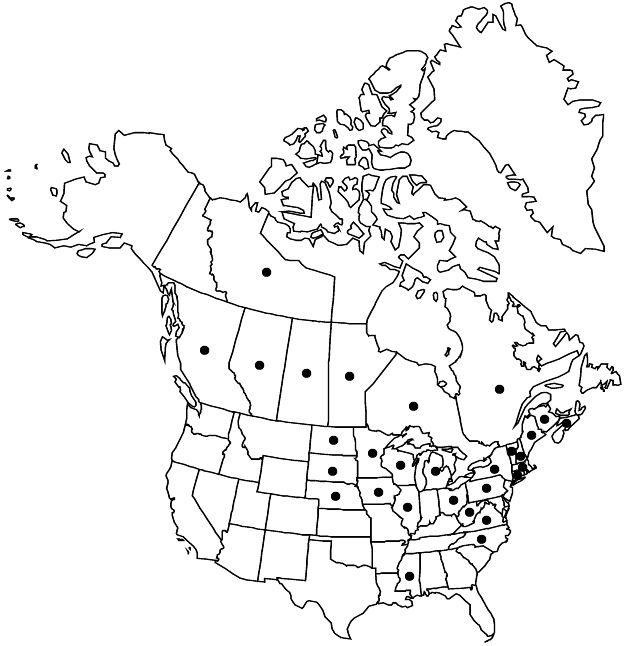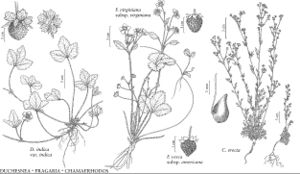Difference between revisions of "Fragaria vesca subsp. americana"
Canad. J. Bot. 40: 872. 1962.
imported>Volume Importer |
imported>Volume Importer |
||
| Line 64: | Line 64: | ||
|publication year=1962 | |publication year=1962 | ||
|special status=Endemic;Illustrated | |special status=Endemic;Illustrated | ||
| − | |source xml=https:// | + | |source xml=https://bitbucket.org/aafc-mbb/fna-data-curation/src/2e0870ddd59836b60bcf96646a41e87ea5a5943a/coarse_grained_fna_xml/V9/V9_441.xml |
|subfamily=Rosaceae subfam. Rosoideae | |subfamily=Rosaceae subfam. Rosoideae | ||
|tribe=Rosaceae tribe Potentilleae | |tribe=Rosaceae tribe Potentilleae | ||
Latest revision as of 22:56, 5 November 2020
Leaves green to bright green; terminal leaflet blade ovate or obovate to slightly rhombic, length/width 1.3–1.6, teeth: relative number 0.2–0.6, relative size 1.5–4, terminal tooth longer than adjacent teeth. Flowers bisexual, 12–14.6 mm diam.; hypanthium 11–16.5 mm diam.; petals white, obovate to widely obovate, margins distinct, sometimes distally crenate. Achenes superficial; bractlets and sepals spreading to strongly reflexed; torus carmine, shiny, elongate-conic (often somewhat pointed), easily separating from hypanthium. 2n = 14.
Phenology: Flowering spring.
Habitat: Open forests, forest edges, clearings, along trails and roadsides, open grasslands, often on steep, rocky slopes and outcrops
Elevation: 0–1900 m
Distribution

Alta., B.C., Man., N.B., N.W.T., N.S., Ont., Que., Sask., Conn., Ill., Iowa, Maine, Mass., Mich., Minn., Miss., Nebr., N.H., N.Y., N.C., N.Dak., Ohio, Pa., S.Dak., Vt., Va., W.Va., Wis.
Discussion
It is assumed that after the maximum glaciation, this North American subspecies spread from an eastern refugium northeastward to the Gaspé and northwestward to the Mackenzie and Peace rivers (G. Staudt 1999).
Selected References
None.
